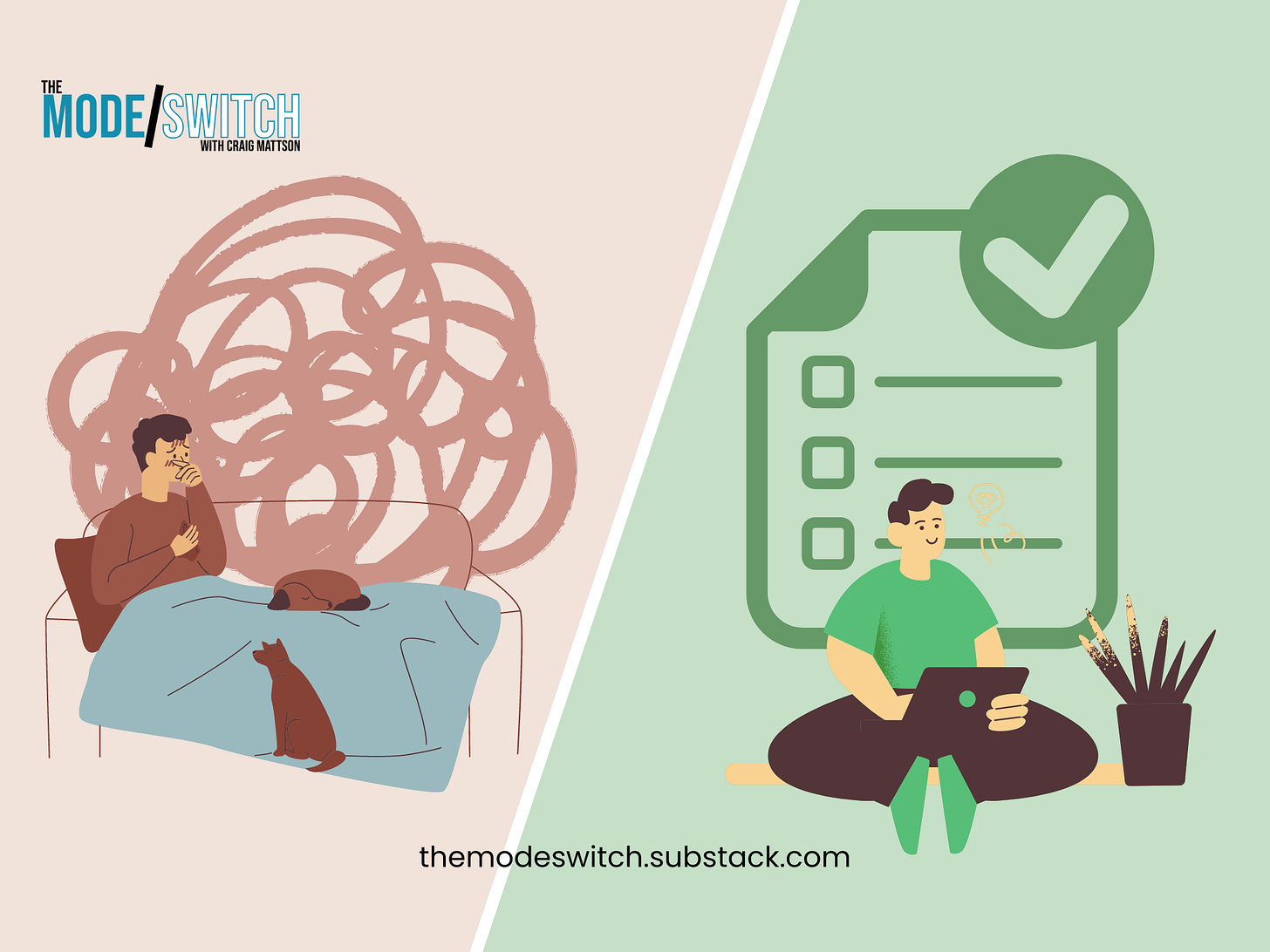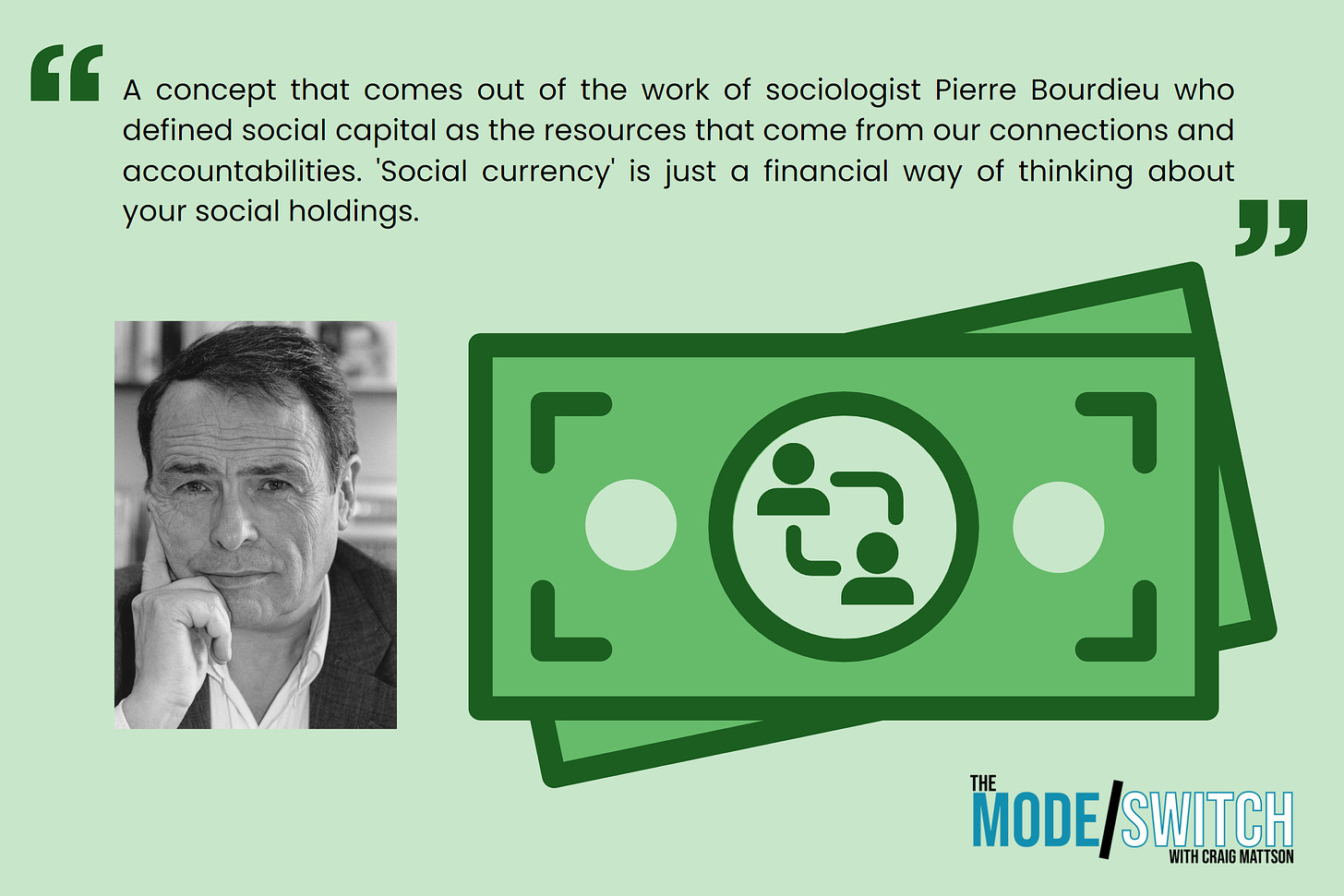Why Do We Hide Who We Are on the Clock?
Try This Bonkers Idea for Bringing Whole Selves to Work
Workplace gurus often tell you to bring your whole self to work. But that’s a lot harder than it sounds. Your “whole self” is not something you can put in your backpack like a sandwich. Your “whole self” is more than you. It’s your people, too.
And if your people are like most people’s people, they aren’t packable. Or bringable.
Your people are the most important thing about who you are. But they are a lot. Your people are funny and gorgeous and quirky. Nobody makes iced coffee or Spotify playlists or inspired sock mismatches like your people. But they also have histories of homelessness and incarceration and compulsion. They smile at you in the morning and then spend the rest of the day raging and falling down.
The more I think about the bring-your-whole-self thing, the more annoyed I get. What about workplaces that feel designed to keep that whole self out?
Bring Your Kid to Work Day is fine. But let’s hear it for Bring Your Klepto Aunt to Work, how ‘bout?
I have a colleague who recently described her private life to me as trashy. It was a stunning disclosure. I mean, she runs her own company, manages a raft of satisfied clients, and does a lot of pro bono work on the side. She’s politically active, and she’s a mom who’s both attentive and relaxed. I’ve learned a lot from her, especially about how to be productive human without failing to be kind. And yet, her personal life—she told me—feels embarrassingly helter-skelter. Two close family members exemplify the troubles. One had a mental health breakdown. The other overdosed on cocaine laced with fetanyl.
Much of what makes our lives fearful and wonderful isn’t professionally presentable. You know that IDER song “Mirror,” right?
People try
People lie
Can't look you in the eye
People suck
People .…
You know where the rhyme scheme goes next. And your own experience tells you it’s true. Your people are infinitely dear and endlessly disappointing.
But why’s it so embarrassing to ever say this at work? We all have humans in our lives who are falling apart. We’re falling apart. So, why the mismatch between the social currencies our people require and the currencies our workplaces accept?
Go with me on this economic analogy. Think how you cover the costs of chaos at home. You spend social currencies like patience and gentleness and skepticism. You spend helpless laughter when there’s nothing else to say. You spend hours on meandering quarrels that you can’t afford. You see undiagnosed mental illness and spend vaults of mute endurance.
Now, think about the social currencies your workplace requires. Positivity. Dutifulness. Hyper-responsiveness. Can-do-ness. These currencies are like a sleek company card that, when you’re assigned a project, you’re supposed to whip out and insert, tap, or swipe. Frictionless, fast, fungible.
But the social currencies we use outside of work are like dollar bills crumpled in the bottom of your backpack, down there with a stick of deodorant, chip bags, and parking tickets. You need that crumpy cash on hand for emergencies. But it’s not easy to pull that stuff out at work.
A colleague recently described her private life as trashy. Just this week, she had one close family member with a mental health breakdown and another overdosed on cocaine laced with fentanyl.
Here’s the maddening thing: our workplaces actually do need awkward currencies. The pennies and quarters of patience and gentleness are indispensable to human exchange. They’re just not very efficient.
So how do we renew our workplaces to welcome what we bring? Here’s another story to move us towards a zany solution.
I know a Gen-Xer who’s spent decades in leadership positions in corporate and academic settings. She’s a refined person, a quietly stylish dresser, someone who never raises her voice, never hurries past a problem. But when her last kid grew up and moved out, she took a step no one in her life saw coming. She took a second job in an entry-level position. Her friend circle shook their heads, baffled. All day long she executes a high-paying job in upper-mid management and then, at night, she’s in the service sector doing menial work. But here’s a thing she’s learned from her younger coworkers in her new position: being a rising professional can be emotionally expensive. Some of her coworkers respond to this expense by hiding in the break room. Others pour it out in stories about abusive partners and vulnerable kids. Simply walking with these coworkers down the halls of a public institution has given my Gen X friend an experience of human turmoil unlike anything in all her years in corporate.
This story suggests an idea that is, I’ll admit, unadulterated bananas. Let’s call it the manager swap.
Here’s how it might work. Find a small-to-midsized company that your company might partner with. Band together with a few coworkers across both organizations and write a proposal for these companies to “give a manager, take a manager” for a few days next quarter. (Maybe take the marketing team and the HR manager out to lunch to get them on board first.) Propose that Company A provide a manager to lead a team for Company B, while that team’s manager goes to work on a lower-level team in Company A. Then reverse things and repeat.
I’m sure this would be forbiddingly and hilariously complicated. Company A and B would need to be in sectors reasonably close together so the managers have some sense of each other’s work—but not so close that you’d be sharing secrets with competitors. You’d have to think very hard about information privacy. But even a dip in efficiency and productivity would be worthwhile—if perspective-shifting made your workplaces more welcoming for people as they are.
Here are three voices that, for me, define and depict just how expensive and chaotic it is to be a person in our time.
If my suggestion provokes infuriated complaints of impracticality, I’m ready to hear more realizable alternatives. Not to get all managerial on you, but you should probably point out that my perspective is very white. Some chaos is due to economic troubles, but so much more of it is due to racism. Still, granting all that, I’d love to hear from you how to honor the crumpy social currencies people spend every day.
What do you think about about holding a stand-up each week focused solely on stories about all unmanageable stuff outside of work?
What about noticing when a coworker spends embarrassing amounts of social capital just to keep their kid alive or their uncle employed?
What about saying more things like, “I got you this time. Let me take that report. You take the afternoon”?
Doesn’t it seem true that if employees didn't have to shove their actual expenses deep, they’d have more free space to think, to collaborate, to make good stuff?
Isn’t that a mode switch worth making?








